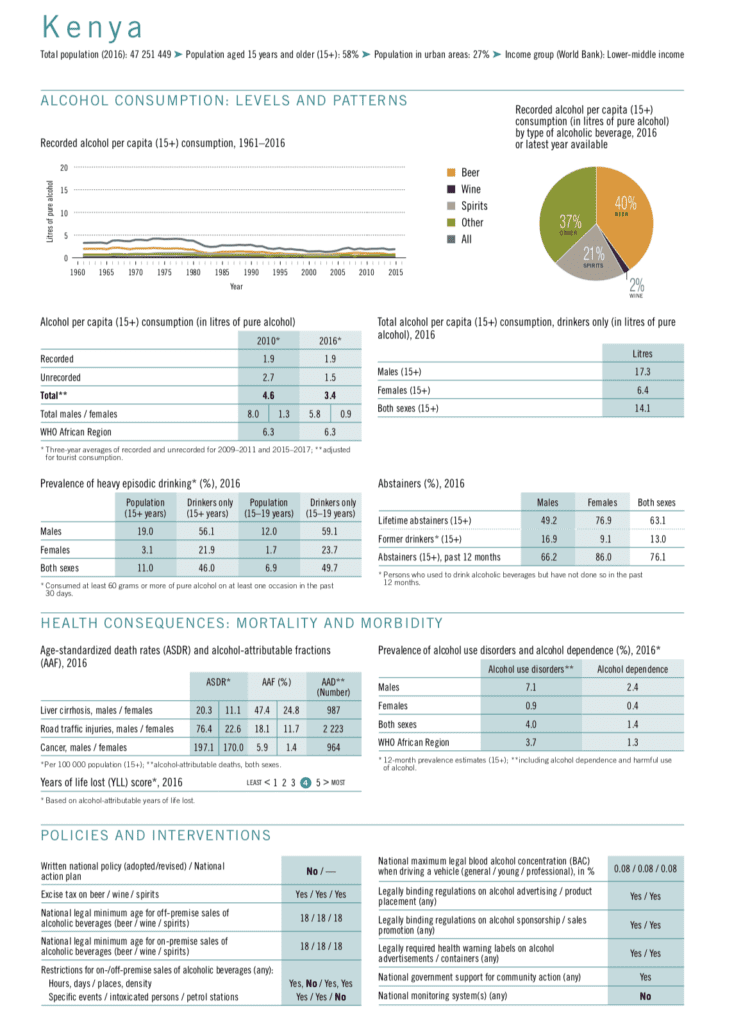Kenya: Government Pledges Action Against Illicit Alcohol
The Kenyan government will intensify its crackdown on counterfeit and sub-standard alcoholic beverages. This action is in response to the public health crisis caused by illicit alcohol use among low income groups.
The ministry of internal security and the public policy think tank, Institute of Economic Affairs (IEA) issued a report on trade in illicit alcohol. The report shows, an estimated 6 million Kenyans were consuming illicit alcohol. Poverty, ignorance about health hazards and poor enforcement of regulation were cited as causes.
Wanyama Musiambo, deputy head of public service and national coordinator of a multi-agency team against illicit alcohol trade, says there are already positive results of the government action.
We have managed to shut down illegal outlets selling contraband alcohol, arrested traders and imposed punitive fines on them.
The next phase […] will focus on enhancing surveillance at border points where unscrupulous traders sneak them from neighboring countries,” said Wanyama Musiambo, as per Xinhuanet.
Kenya is banking on robust policing and consumer education to reduce the proliferation of illicit alcohol that makes up about 30% of the alcohol market in Kenya.
Elema Halake, chief executive officer of the Anti-Counterfeit Agency, said that a mixture of regulatory and market-led interventions is key to reduce intake of substandard alcoholic products in Kenya.
Alcohol Policy in Kenya
As WHO reports, Kenya is placed at the high end for years of life lost due to alcohol. Almost half of Kenyan youth between 15 to 19 years who consume alcohol engage in the harmful habit of binge alcohol use. 7.1% men in the country suffer from alcohol use disorders, this is comparatively higher than the average for the WHO African region.
Decreasing illicit alcohol use is a definitive step forward in curbing the alcohol harm in the country. However, Kenya lacks a comprehensive alcohol control policy which is needed as suggested by the data, to effectively prevent and reduce the alcohol harm in the country in the long run.

